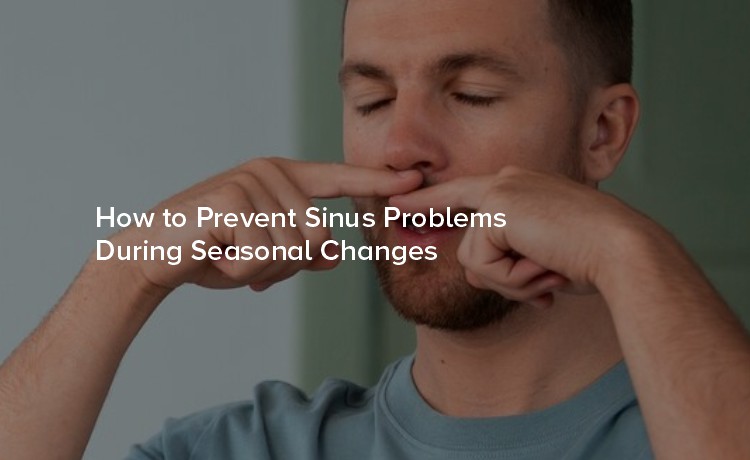
Seasonal changes can be beautiful—the blooming flowers of spring, crisp autumn mornings, or the first snowfall of winter—but for many, these transitions can come at a cost. If you’ve noticed your sinuses acting up whenever the weather shifts, you’re not alone. Sinus problems, including congestion, headaches, and sinus infections, are common complaints as seasons change.
Understanding why sinus problems often flare up during seasonal transitions is the first step to prevention. The sinuses are hollow cavities in the skull that produce mucus, which keeps the nasal passages moisturized and protects against airborne irritants like dust or allergens. However, seasonal shifts can disrupt this balance.
Here are the common factors contributing to sinus issues during these times:
1. Allergy Triggers
Seasonal changes often bring shifts in pollen counts, mold spores, and other allergens. Spring introduces tree and flower pollen, while autumn can stir up mold spores and dust mites. For those with sensitive sinuses, these allergens can lead to inflammation and congestion.
2. Temperature Fluctuations
Sudden drops or rises in temperature can irritate the nasal passages. For example, cold air can dry out the mucous membranes, while warm, humid air can lead to swelling and stuffiness.
3. Changes in Airborne Particles
Shifting seasons often mean kicking on the heater or air conditioner, stirring up dust and dander. Combined with changing outdoor pollutants, this can irritate your sinuses.
4. Weakened Immune Response
As weather changes, some people’s immune defenses may become less effective, making them more susceptible to colds and sinus infections.
Now that we understand the triggers, how can you take control and prevent sinus trouble before it ruins your day? Here’s a step-by-step guide.
1. Stay Ahead of Allergy Season
If allergies are your main trigger, preparation is key. Here’s how to manage:
2. Maintain Proper Humidity Levels
Dry indoor air, especially during winter when heaters are running, can cause your mucous membranes to dry out. On the other hand, overly humid environments can promote mold growth.
3. Practice Daily Nasal Hygiene
Keeping your nasal passages clean can go a long way in preventing sinus issues.
4. Protect Yourself from Temperature Extremes
Sudden exposure to cold air or high winds can irritate your nasal passages. Here’s how to minimize this:
5. Boost Your Immune System
Maintaining a strong immune system can reduce your susceptibility to colds and sinus infections.
6. Avoid Common Irritants
Aside from allergens, other environmental factors can also wreak havoc on your sinuses.
7. See a Doctor for Chronic Sinus Issues
If sinus problems persist despite your efforts, a visit to an ear, nose, and throat (ENT) specialist may be necessary. Chronic sinus conditions, such as recurring infections, may require prescription medications or other interventions like allergy shots.
Beyond seasonal care, developing these habits can help you maintain clear and healthy sinuses throughout the year.
Even with the best prevention efforts, sinus problems may still arise. Here’s how to manage symptoms effectively:
Sinus issues can feel inevitable when the seasons shift, but they don’t have to derail your life. By understanding your triggers and taking proactive steps, you can prevent many common sinus problems and spend more time enjoying the beauty of each season. From proper nasal hygiene to managing allergens and boosting your immune system, small changes can make a big difference.